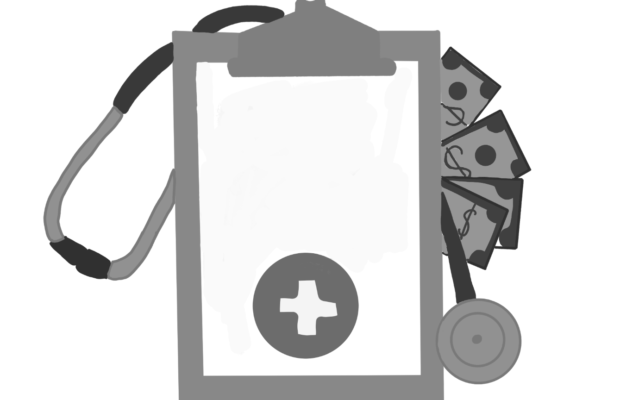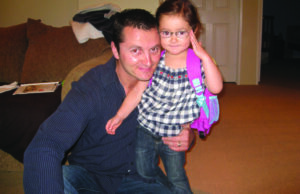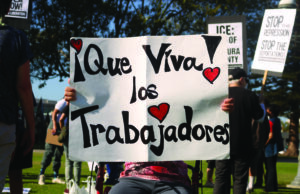The struggles of medical debt and healthcare

While others struggle to pay for a single doctor’s appointment, my family and I are able to pay for multiple appointments, with our privilege to have access to healthcare coverage. Approximately half of the U.S. population doesn’t have health insurance or medical debt, making the possibility you know someone who falls in this category very high.
Caroline Reilly, a 26-year-old female, suffers from endometriosis, a chronic reproductive health condition that can cause infertility, pain, fatigue and organ damage. After undergoing an ineffective ablation surgery, Reilly found out she needed an excision surgery. This type of procedure is a very high standard in endometriosis care, therefore limiting the access to find a surgeon to successfully perform an excision surgery. Because of this, most people who suffer from endometriosis are, “looking at tens of thousands in out-of-pocket costs,” Reilly said.
After searching, Reilly finally found a specialist two hours away from her. However, she still struggled to get the health insurance coverage for the hospital. “My surgeon was literally on the phone with insurers at the airport while on vacation with his family, fighting to make sure I wouldn’t be charged tens of thousands for my hospital care,” Reilly said.
Ultimately, the insurance company ended up covering the cost of the hospital care, but Reilly still paid thousands of dollars out of pocket for the surgeon’s care and office visits. In spite of this, some people aren’t as lucky as Reilly. “I have friends who aren’t on insurance plans that cover hospital fees, as mine did, and some are out tens of thousands of dollars for surgeries that saved their quality of life,” Reilly said.
My grandparents are one of the many people in the U.S. who feel the pressure of medical debt. My grandparents, Eleni and George Hioureas, came to the United States from Greece in the year 1963. They didn’t speak a word of English nor knew anyone but they still came to America for better opportunities and a better life. My grandfather worked every day and every night doing any job he could obtain, even if they were dangerous. He worked building train stations for 35 years, where he inhaled toxic chemicals that would eventually lead to health issues.
Now, at 84-years-old, George requires intense chemotherapy and around five urgent care trips every month. This is already really hard for me and my entire family to see, but it’s even harder for my grandparents who have to pay for any extra charges their insurance doesn’t cover. My grandparents did everything they could to provide a better life for themselves and their family but are still facing serious debt. There are millions of stories just like my grandparents’ stories where medical debt can overtake one’s life. An easy solution is to provide access to basic healthcare for all and therefore eliminate any potential risk factors in someone’s life.
Caroline Reilly’s story was taken from the “Vice.”



